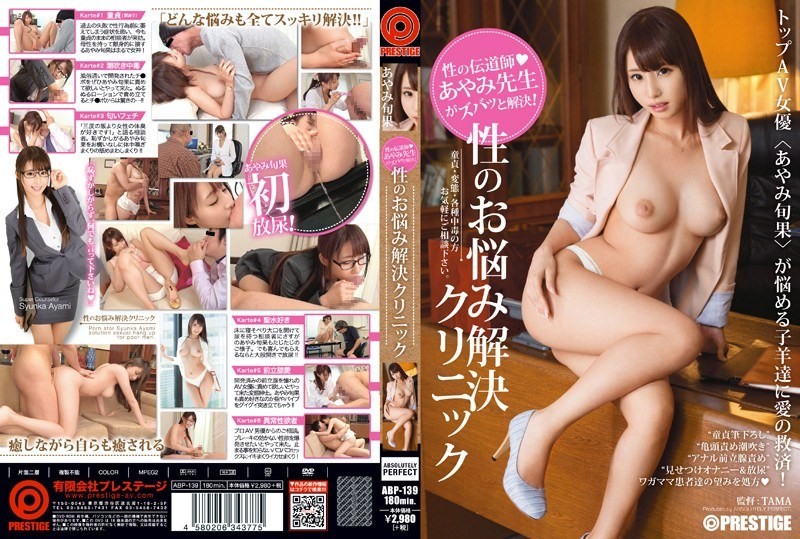ABP-139 Contact Itch Clinic Ayami Shunhate Sex
In recent years, the medical community has increasingly focused on dermatological conditions that impact quality of life, including contact itch. Among specialized clinics dedicated to this area, the ABP-139 Contact Itch Clinic has gained recognition for its comprehensive approach to diagnosis and treatment. With a team of dedicated professionals and cutting-edge research, the clinic aims to improve patient outcomes through tailored therapies. One notable figure associated with the clinic is Ayami Shunhate, whose expertise and role have contributed significantly to its reputation. This article explores the clinic’s services, introduces Ayami Shunhate, and examines current understanding and future directions in contact itch treatment.
Overview of ABP-139 Contact Itch Clinic and Its Services
The ABP-139 Contact Itch Clinic is a specialized dermatology center dedicated to diagnosing and managing contact dermatitis and related itchy skin conditions. Its primary focus is on contact itch, a condition triggered by exposure to allergens or irritants that cause persistent and sometimes debilitating itching. The clinic offers a multidisciplinary approach, combining dermatological assessments, allergy testing, and personalized treatment plans. State-of-the-art diagnostic tools, including patch testing and dermoscopy, enable accurate identification of offending agents. The clinic also provides educational resources to help patients understand their condition and prevent future flare-ups. Its comprehensive services aim to improve patients’ comfort and skin health through targeted interventions.
In addition to standard consultations, the clinic offers advanced therapies such as topical corticosteroids, immunomodulators, and novel biological agents. Patients can access allergen avoidance counseling, skin barrier repair treatments, and lifestyle modifications. The clinic emphasizes a patient-centered approach, tailoring treatments based on individual sensitivities and lifestyle factors. Regular follow-up appointments ensure that therapies remain effective and adjustments are made as needed. The clinic also collaborates with researchers to stay updated on emerging treatments, ensuring patients benefit from the latest advancements in contact itch management.
Furthermore, the ABP-139 Contact Itch Clinic provides educational workshops and support groups to foster community and knowledge sharing among patients. These initiatives aim to reduce stigma and empower individuals to manage their condition proactively. The clinic’s multidisciplinary team includes dermatologists, allergists, and nurses, ensuring comprehensive care. Telemedicine services are also available to reach patients in remote areas, making specialized care accessible to a broader population. Overall, the clinic stands out for its integrated approach, combining clinical expertise, patient education, and ongoing research.
The clinic’s commitment to innovation is reflected in its participation in clinical trials and research projects focused on contact itch. These efforts aim to develop new diagnostic markers and therapeutic agents, ultimately advancing the standard of care. The clinic maintains a patient-first philosophy, prioritizing comfort, safety, and long-term skin health. Its holistic approach has earned recognition within the dermatological community, positioning it as a leader in contact itch treatment and research.
Introduction to Ayami Shunhate and Her Role at the Clinic
Ayami Shunhate is a prominent dermatologist and researcher associated with the ABP-139 Contact Itch Clinic. Known for her expertise in contact dermatitis and immunological skin conditions, she has become a key figure in the clinic’s success. Shunhate’s background includes extensive training in dermatology, allergy testing, and innovative treatment modalities. Her passion for improving patient quality of life drives her to develop new approaches for managing complex cases of contact itch. She is also actively involved in research projects aimed at understanding the underlying mechanisms of skin sensitivities and allergic responses.
At the clinic, Ayami Shunhate serves as both a lead clinician and a research coordinator. Her clinical practice involves diagnosing difficult cases, designing personalized treatment plans, and guiding patients through their recovery process. She is known for her meticulous attention to detail and compassionate patient interactions, which help build trust and adherence to treatment. Her role also includes educating patients about allergen avoidance and skin care routines, emphasizing a holistic approach to managing contact itch. Additionally, she mentors junior staff and collaborates with other specialists to enhance the clinic’s multidisciplinary efforts.
Beyond her clinical duties, Shunhate contributes to the scientific community through publications and conference presentations. Her research focuses on identifying novel allergens, understanding immune responses in contact dermatitis, and exploring new therapeutic agents. Her work has helped shape current best practices and influenced guidelines for contact itch management. She remains committed to integrating emerging research into clinical care, ensuring patients benefit from the latest scientific advancements. Her dedication has earned her recognition within the dermatological field and among patient advocacy groups.
Shunhate’s involvement in the clinic extends to community outreach and education initiatives. She actively participates in public seminars, raising awareness about contact dermatitis and preventative measures. Her approachable demeanor and clear communication style make complex medical concepts accessible to lay audiences. This outreach aims to reduce misconceptions about skin allergies and promote early intervention. Her leadership at the ABP-139 Contact Itch Clinic exemplifies a blend of clinical excellence, research innovation, and community engagement, making her a vital asset to the facility.
Overall, Ayami Shunhate embodies the integration of scientific research and compassionate patient care. Her role at the ABP-139 Contact Itch Clinic underscores her commitment to advancing understanding and treatment of contact itch. Through her work, she continues to contribute to the evolving landscape of dermatological health, offering hope and relief to those affected by this challenging condition.
Understanding the Causes and Symptoms of Contact Itch
Contact itch is a dermatological condition characterized by persistent or episodic itching resulting from direct contact with specific substances. It is often associated with contact dermatitis, which involves an inflammatory response triggered by allergens or irritants. Common causes include metals like nickel, fragrances, preservatives, latex, and certain chemicals found in cosmetics or cleaning products. The severity of contact itch can vary from mild discomfort to intense, uncontrollable sensations that impair daily functioning. Understanding the causes is essential for effective management and prevention.
The pathophysiology of contact itch involves immune-mediated responses, where the skin’s immune system reacts abnormally to harmless substances. Allergic contact dermatitis, a type IV hypersensitivity reaction, develops after sensitization to an allergen. Once sensitized, subsequent exposures cause inflammation and itching. Irritant contact dermatitis, on the other hand, results from direct damage to the skin barrier by harsh chemicals, leading to irritation and itchiness. Both types can coexist, complicating diagnosis and treatment. Recognizing the specific triggers through patch testing is crucial for personalized care.
Symptoms of contact itch typically include intense itching, redness, swelling, and sometimes blistering or scaling of affected areas. The itching can be localized or widespread, depending on the extent of exposure. Patients often report a burning or stinging sensation alongside the itch. Chronic cases may lead to skin thickening or lichenification due to repeated scratching. The condition can significantly impair quality of life, causing sleep disturbances and emotional distress. Identifying and avoiding triggers are vital steps in managing symptoms effectively.
Environmental and lifestyle factors influence the development and severity of contact itch. Exposure to harsh soaps, environmental pollutants, and certain fabrics can exacerbate symptoms. Personal habits, such as frequent hand washing or use of irritating skincare products, also play a role. Genetic predispositions may make some individuals more susceptible to allergic reactions. Additionally, underlying skin conditions like atopic dermatitis can increase vulnerability. A comprehensive understanding of these causes and contributing factors helps clinicians develop targeted strategies for prevention and treatment.
Patient education is fundamental in managing contact itch. Patients are encouraged to keep detailed diaries of exposures and symptoms, aiding in identifying triggers. Patch testing remains the gold standard for detecting specific allergens. Once identified, avoidance strategies, protective clothing, and skin barrier repair techniques can significantly reduce symptoms. The importance of proper skincare routines, including moisturization and gentle cleansing, cannot be overstated. Recognizing early signs and seeking prompt medical advice are key to preventing chronicity and improving overall skin health.
Research continues to explore the complex mechanisms underlying contact itch, aiming to develop more precise diagnostic tools and targeted therapies. Advances in immunology and allergen identification are paving the way for personalized medicine approaches. Understanding individual sensitivities and immune responses allows for more effective management and reduced reliance on broad-spectrum medications. As knowledge expands, future treatments may include innovative biological agents or immunomodulatory therapies designed to modulate specific pathways involved in contact dermatitis. This ongoing research holds promise for more effective and less invasive management options.
Treatment Approaches Offered at the ABP-139 Contact Itch Clinic
The ABP-139 Contact Itch Clinic employs a multifaceted approach to treatment, combining diagnostic precision with personalized therapy plans. The first step involves comprehensive assessment, including detailed patient history and advanced diagnostic tests such as patch testing to identify specific allergens or irritants. This targeted approach ensures that treatments address the root causes rather than just symptoms. The clinic emphasizes allergen avoidance, guiding patients on how to minimize exposure through lifestyle modifications and protective measures.
Once triggers are identified, the clinic offers a range of topical treatments to alleviate symptoms and repair skin barrier function. These include corticosteroid creams to reduce inflammation, calcineurin inhibitors for immune modulation, and emollients to restore skin hydration. In more severe cases, systemic therapies such as antihistamines or oral corticosteroids may be prescribed. The clinic also explores the use of newer biological agents that target specific immune pathways involved in contact dermatitis, reflecting its commitment to innovative care. These treatments are carefully monitored to maximize efficacy and minimize side effects.
In addition to pharmacological interventions, the clinic emphasizes non-drug therapies such as phototherapy, which uses controlled ultraviolet light to reduce inflammation. Skin barrier repair products and hypoallergenic skincare routines are recommended to protect sensitive skin areas. Patients receive education on avoiding common irritants and allergens in everyday products and environments. Lifestyle counseling includes tips on clothing choices, cleaning routines, and workplace safety measures to prevent future episodes. This comprehensive approach aims to achieve long-term skin health and reduce the frequency of flare-ups.
The clinic also offers ongoing support through regular follow-up appointments, allowing clinicians to assess treatment effectiveness and make adjustments as needed. Patient adherence to allergen avoidance strategies is reinforced through education and motivational counseling. For complex cases, multidisciplinary collaboration with allergists and immunologists helps optimize outcomes. The incorporation of patient feedback ensures that treatments align with



